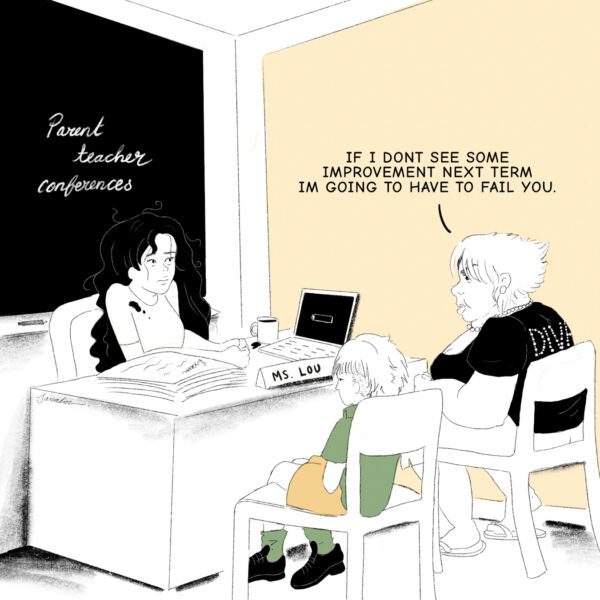Is Australia really a good place to teach? A foreigner’s experience
If you’re planning to move to Australia and want to know what it is really like teaching in Australia then this post is for you. Australian teaching salaries are very attractive but the whole country is struggling to find anyone willing to take up the role. Why are so many people leaving the profession and are schools struggling to find teachers? Maybe, just maybe, that teacher could be you.
What you’ll find here: What it is really like teaching in Australia
I have almost a decade experience teaching and I taught in Australia for less than a full school year (two different schools across two different states) before I decided that hell would need to freeze over before I stepped into a classroom again. This is my personal opinion and I believe context matters: if you’re coming from somewhere like a public American school, your opinion on teaching in Australian schools may be completely different to mine (I’m coming from teaching art and design subjects at international schools in Japan). However, I know a lot of teachers also share my experiences so I hope this can help you make the decision if teaching in Australia is right for you.

Breaking down What it is Really Like Teaching in Australia
State differences
Australia has different states and when you want to teach in a particular state you need to register as a teacher in that state. For instance, if you live in Melbourne you will need to register with the Victorian Institute of Teaching and when approved you will be eligible to teach in the state of Victoria. I have taught in two different states and I can tell you that they are not created equal. One state might have a supportive and easily-to-follow registration while another might take months to register and are impossible to contact.
I remember calling one state registration office to have the person on the other line mockingly read the website page back to me when I wanted something clarified. That basically sums up how Australians view the teaching profession. If you have a teaching degree from overseas or you have a no experience with the Australian education system, it can be incredibly daunting even figuring out the application process.
The public and private divide
One thing to keep in mind when considering teaching in Australia is that not only does every state function differently, but every state has a strong private and independent school community. My background is in IB and I was pretty excited to continue my career in a secular IB school in Australia. What I found was that it is a lot more complicated than that. Most private schools are religious with catholic schools being HUGE in Australia (Catholic schools educate one in five NSW students) which means many schools look for teachers who follow their faith. In many cases, they will ask for a recommendation from the church.
Public schools in city centres like Melbourne and Sydney are highly sought after positions and many teachers end up having to teach in rural Australia for years before being eligible to apply for these positions. As I don’t drive and my partner works in the CBD this ruled public schools out for me and I ended up seeking employment at private schools that would accept a heathen like myself.
Your responsibilities
Unlike public schools that only require you to be at school 10 minutes before kids arrive, private schools will have you outside in the bitter cold on a Saturday morning for rowing club (“what do I know about rowing? Why am I here?“) and staying behind at school until 9pm for music recitals that will make you wonder where you went wrong with your life. Expect to be treated like the help by entitled parents.
Regardless of private or public, if you are teaching in Australia you will be expected to teach children to be responsible for their belongings, tie their shoelaces (an actual middle school problem these days), manage their emotions and relationships, and cover (substitute) classes that range from senior economics to field trips with 7 year olds on any given day. Parenting has been completely outsourced to teachers. Oh yeah, and you better teach them everything they need to know academically, while you’re at it.
Whether you’re in a private or public school you’ll also expect a lot of paperwork. Australia holds teachers very accountable, and you’ll find yourself suffocating under the weight of every move you make being scrutinised by people that usually have zero relevant experience in the classrooms we face today.
Class conditions in australia
This was probably my biggest shock teaching in Australia. Even in private schools you’ll find class sizes mostly in the 20s (this might not sound that bad until you read about the behaviour of Australian students).
I was also surprised to find that when taking a tour of a prospective private school campus that some classrooms were so subpar that using the word “classroom” seemed a misrepresentation for what was clearly a closet with a window (remember when I said that most classes were over 20 students? Are we meant to stack them on top of each other?). It is important to find out what subjects the school values. I’ve found that most schools in Australia put a lot of value on sports, music, and math, and most private schools will boast their range of sport offerings and sport facilities.
In my case, being a VCD and Visual Art teacher usually means that we are an afterthought and rarely get a suitable classroom and facilities. Teaching in Australia often means you’ll face poor equipment (or non-existent equipment!), age-inappropriate seating, and a bathroom so far away you’ll never make it during school hours.
Behaviour of students in australia
Student behaviour has been on the decline in most countries and it is no different in Australia. Personally, this was the issue that made me decide against teaching in Australia. Australia is a very individualist country (think baby USA), so you’ll find that there is little to no respect for teaching and this can be quite shocking if you’re used to a more community approach to education (Europe) or a certain level of respect for your profession/elders (Asia). You may as well be a bug on their shoe (or in Australia’s case, thong).
You will find students and parents apathetic at best and hostile at worst. The general public in Australia does not seem to value education anymore, and you’ll find this reflected in the lack of trust society has with the teaching profession.
The uncertainty of the profession
While there are cries for teachers to take up positions in schools, one of the bizarre things you’ll notice when applying for roles is that the majority of them are contract positions. This means that you’ll be completing multiple round interviews and performing demo lessons (aka free covers) in schools all to gain a position that might only last a term.
Then you’ll be spending that term on your very best behaviour, hoping to gain that permanent position (only to be told that you’ve been passed over for another cheaper temp or that the teacher who went on maternity leave seven years ago is returning). Teaching in Australia in temporary roles is a recipe for burnout as it very hard to plan your future when you don’t know where you’ll be teaching next term.
Other teachers
Australia is quite isolated from the rest of the world and you’ll find that the majority of your coworkers will have grown up in the same context in which they teach (you’ll also find a lot of ex-students becoming teachers once they graduate at the private schools!) and many haven’t experienced anything outside of that (read: white) world. This can make it hard to find common ground beyond your profession if you don’t have the same background. It is also a bit of a surprise considering how diverse Australia is!
Because of the insular communities (especially at private schools) it can also feel a little cliquey and all a bit highschool – where friends get promoted or hired so they can spend their days hanging out together. At one school I watched someone in leadership give his wife a head of department role, who then hired her best friend to work along side her. Cool and normal.
The australian curriculum
The Australian curriculum is used all throughout Australia however states implement it differently. For instance, Victoria has their own curriculum, VCAA that incorporates the Australian Curriculum. Basically, it’s a whole big mess. However, I will say that I think the Australian Curriculum has a really helpful and clear website for new teachers coming to Australia. There are also so many great resources and work samples to help you along the way so if you do end up teaching in Australia make sure you utilise it!
teaching Salary in australia
Salaries depend on experience and all public schools and most private schools have easily accessible published salary ranges. You’ll hear most Australian teachers complain about pay (which is totally fair considering the hours and conditions of work) however the pay is pretty high compared to teaching salaries in other countries.
Personally, I feel like due to the conditions, the salary is not worth it (who wants to worry about having a knife pulled on them for 100k a year?) – especially because as you gain more experience, there are more hoops you will need to jump through and responsibilities to take on in order to get into the leading pay ranges. The cap for teaching salaries means I found it is not a viable career move long term compared to other career paths.
Read the rest of the guide:
Teaching
- The Symptoms of Teacher Burnout and How to Deal
- Want To Leave Teaching? Everything You Need To Know
- How I Quit Teaching & Drastically Improved My Quality of Life
- Design Your Life Tips: How To Get A Job You Love
- Life After Teaching: The Best Careers for Ex-teachers
- What Leaving Teaching Looks Like a Year Later
- What I Miss About Teaching
VERDICT
Verdict: Is teaching in Australia a good idea?
If you’re looking to move to Australia and gain permanent residency, teaching may be a door into this beautiful country. However, I think that you would have to be pretty desperate or some kind of masochist to want to be a teacher in Australia for any other reason! For the amount of time, effort, and learning you have to put into teaching there are so many more career paths you could take in Australia that would lead to better money, a healthier work/life balance, and far less stress.
Thanks for reading!
I’d love to hear your thoughts. If you’re on Instagram, you can find me over here: @apicturesquelife or youtube: @apicturesquelife and I’d be happy to connect!
xoxo,

WANT TO SAY THANK YOU?
I strive to keep all of my guides accessible to all. If my free content has helped you in any way and you would like to say ‘thank you’, I would hugely appreciate any donation towards my work and the running costs of this blog. Any contribution is greatly appreciated!
